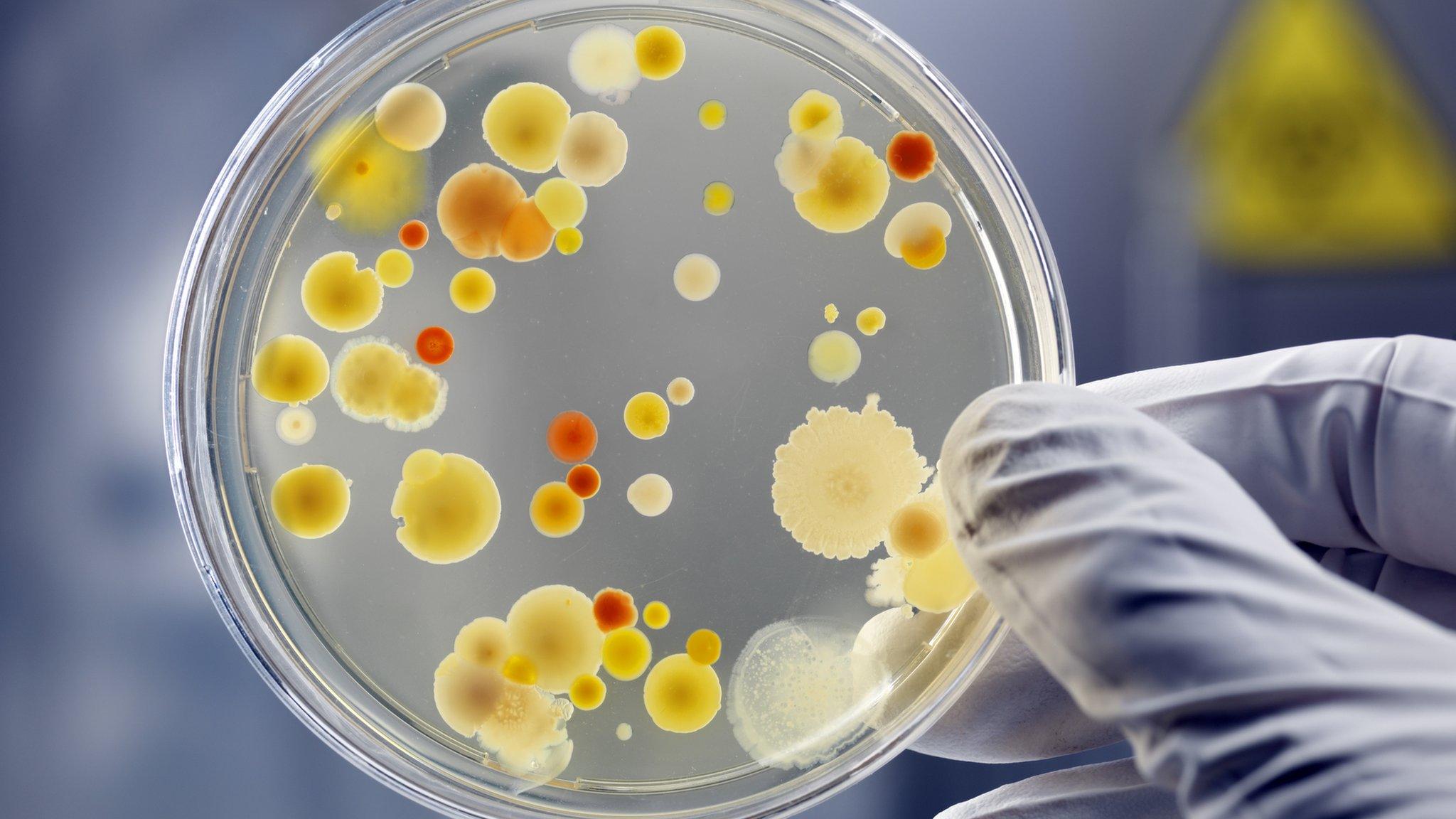Why red wine could be good for your gut - in moderation
- Published
- comments

Red wine could be good for the gut, increasing the number of different types of helpful bacteria that can live there, according to researchers.
The benefits are likely to come from polyphenols - compounds that white wine, beer and cider have far less of, the King's College London team says.
A glass a fortnight was enough to make a difference, but researchers say the findings are not an excuse to binge.
Polyphenols are also found in many fruits and vegetables.
Why does it matter?
Polyphenols, such as resveratrol in the skin of red grapes, are micronutrients that are thought to have beneficial properties and act as a fuel for useful microbes living inside our bowel.
Our guts contain trillions of bacteria and other micro-organisms and this community of "friendly" bugs helps keep us healthy.
A growing body of research suggests small changes to our microbiota can make us more susceptible to illnesses such as Irritable Bowel Syndrome, heart disease and obesity and may even affect our mood and mental health.
Our diets, lifestyles and some types of medication that we may take can upset this finely balanced gut ecosystem.
What was the research?
The study, published in the journal Gastroenterology, external, looked at thousands of people living in the UK, the US and the Netherlands.
The participants - all twins enrolled in health research programmes - were asked about their diet and how much and what type of alcohol they typically drank.
The gut microbiota of red wine drinkers was more diverse than that of non-red wine drinkers.
Gut bug diversity increased the more red wine a person consumed, although occasional drinking - one glass a week or fortnight - appeared to be sufficient.
None of the participants was a heavy drinker.
The researchers say heavy consumption is not recommended and would probably have a bad effect on gut bugs, as well as on a person's general health.
What do experts say?
Researcher Dr Caroline Le Roy said: "This is an observational study so we cannot prove that the effect we see is caused by red wine."
"If you must choose one alcoholic drink today, red wine is the one to pick as it seems to potentially exert a beneficial effect on you and your gut microbes, which in turn may also help weight and risk of heart disease.
"You do not need to drink every day and it is still advised to consume alcohol with moderation."
She said she would like to do a follow-up study offering people red wine, no alcohol or red grape juice to see what effect each has on gut microbiota.
"We are starting to know more and more about gut bacteria. It is complex, and we need more research, but we know that the more diversity there is, the better it appears to be for our health."
Alex White, assistant nutrition scientist at the British Nutrition Foundation, said: "The findings from this study are interesting, and the effects of our diet on the bacteria in our gut is a really exciting area of science.
"However, more research is needed before making any firm conclusions about any associations between red wine intake and changes in the gut flora, and whether this is likely to result in tangible health benefits.
"It should be remembered that high levels of alcohol intake are linked with an increased risk of a range of health problems including some cancers, heart disease, stroke and liver disease, and that to keep health risks from alcohol to a low level it is recommended that adults do not drink more than 14 units a week on a regular basis."
Dr Megan Rossi, a consultant dietician at King's - not involved in the research - and a spokesperson for the British Dietetic Association, said: "There are merits in the findings. I wouldn't recommend that people start drinking red wine, but if people do drink a little bit now and again then they shouldn't feel guilty - and it might even be beneficial."
- Published24 January 2019

- Published22 July 2019

- Published3 November 2017
